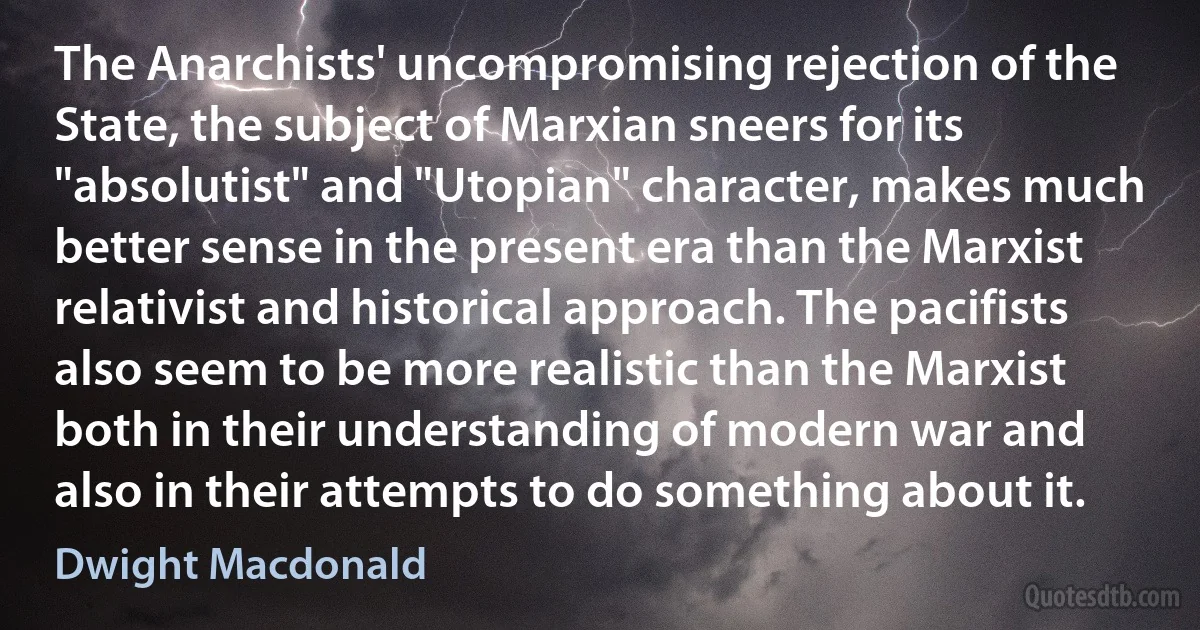Absolutist Quotes
Spinoza, then, emerged as the supreme philosophical bogeyman of Early Enlightenment Europe. Admittedly, historians have rarely emphasized this. It has been much more common, and still is, to claim that Spinoza was rarely understood and had very little influence, a typical example of an abiding historiographical refrain which appears to be totally untrue but nevertheless, since the nineteenth century, has exerted an enduring appeal for all manner of scholars. In fact, no one else during the century 1650–1750 remotely rivalled Spinoza's notoriety as the chief challenger of the fundamentals of revealed religion, received ideas, tradition, morality, and what was everywhere regarded, in absolutist and non-absolutist states alike, as divinely constituted political authority.

Baruch Spinoza
In the history of madness, two events signal this change with singular clarity: in 1657, the founding of the Hôpital Général, and the Great Confinement of the poor; and in 1794, the liberation of the mad in chains at Bicêtre. Between these two singular and symmetrical events, something happened, whose ambiguity has perplexed historians of medicine: blind repression in an absolutist regime, according to some, and, according to others, the progressive discovery, by science and philanthropy, of madness in its positive truth. In fact, beneath these reversible meanings, a structure was taking shape, which did not undo that ambiguity but was decisive for it. This structure explains the passage from the medieval and humanist experience of madness to the experience that is our own, which confines madness in mental illness.

Michel Foucault
Absolutist statements about Islam being "fundamentally violent" are deceptive, because Muslims can and do choose to ignore or renounce the more violent aspects of their dogma -- just as Christians do. [...] in the modern world, there are many, many Muslims who do not follow this version of Islam, who are decent human beings who want the same things other human beings want - peace, security, and a chance to succeed.

Charles Foster Johnson
What I want to bring out is how a pebble cast into a pond causes ripples that spread in all directions. And each one of our thoughts, words and deeds is like that. Going to jail for distributing leaflets advocating war tax refusal causes a ripple of thought, of conscience among us all. And of remembrance too. .... There may be ever improving standards of living in the U.S., with every worker eventually owning his own home and driving his own car; but our modern economy is based on preparation for war. ... The absolutist begins a work, others take it up and try to spread it. Our problems stem from our acceptance of this filthy, rotten system.

Dorothy Day
I met Malcolm X once in Washington, but circumstances didn't enable me to talk with him for more than a minute. He is very articulate ... but I totally disagree with many of his political and philosophical views - at least insofar as I understand where he now stands. I don't want to seem to sound self-righteous, or absolutist, or that I think I have the only truth, the only way. Maybe he does have some of the answer. I don't know how he feels now, but I know that I have often wished that he would talk less of violence, because violence is not going to solve our problem. And in his litany of articulating the despair of the Negro without offering any positive, creative alternative, I feel that Malcolm has done himself and our people a great disservice. Fiery, demagogic oratory in the black ghettos, urging Negroes to arm themselves and prepare to engage in violence, as he has done, can reap nothing but grief.

Malcolm X
Rarely cited by the Supreme Court today, Justice Black is generally viewed by the Court (as he was by Bickel) as too 'absolutist,' too unyielding, too unresponsive to other societal needs. But the Pentagon Papers case may, even now, best be recalled in Justice Black's opinion, the last he would write on the Court.

Hugo Black
I met Malcolm X once in Washington, but circumstances didn't enable me to talk with him for more than a minute. He is very articulate ... but I totally disagree with many of his political and philosophical views - at least insofar as I understand where he now stands. I don't want to seem to sound self-righteous, or absolutist, or that I think I have the only truth, the only way. Maybe he does have some of the answer. I don't know how he feels now, but I know that I have often wished that he would talk less of violence, because violence is not going to solve our problem. And in his litany of articulating the despair of the Negro without offering any positive, creative alternative, I feel that Malcolm has done himself and our people a great disservice. Fiery, demagogic oratory in the black ghettos, urging Negroes to arm themselves and prepare to engage in violence, as he has done, can reap nothing but grief.

Martin Luther King Jr.

